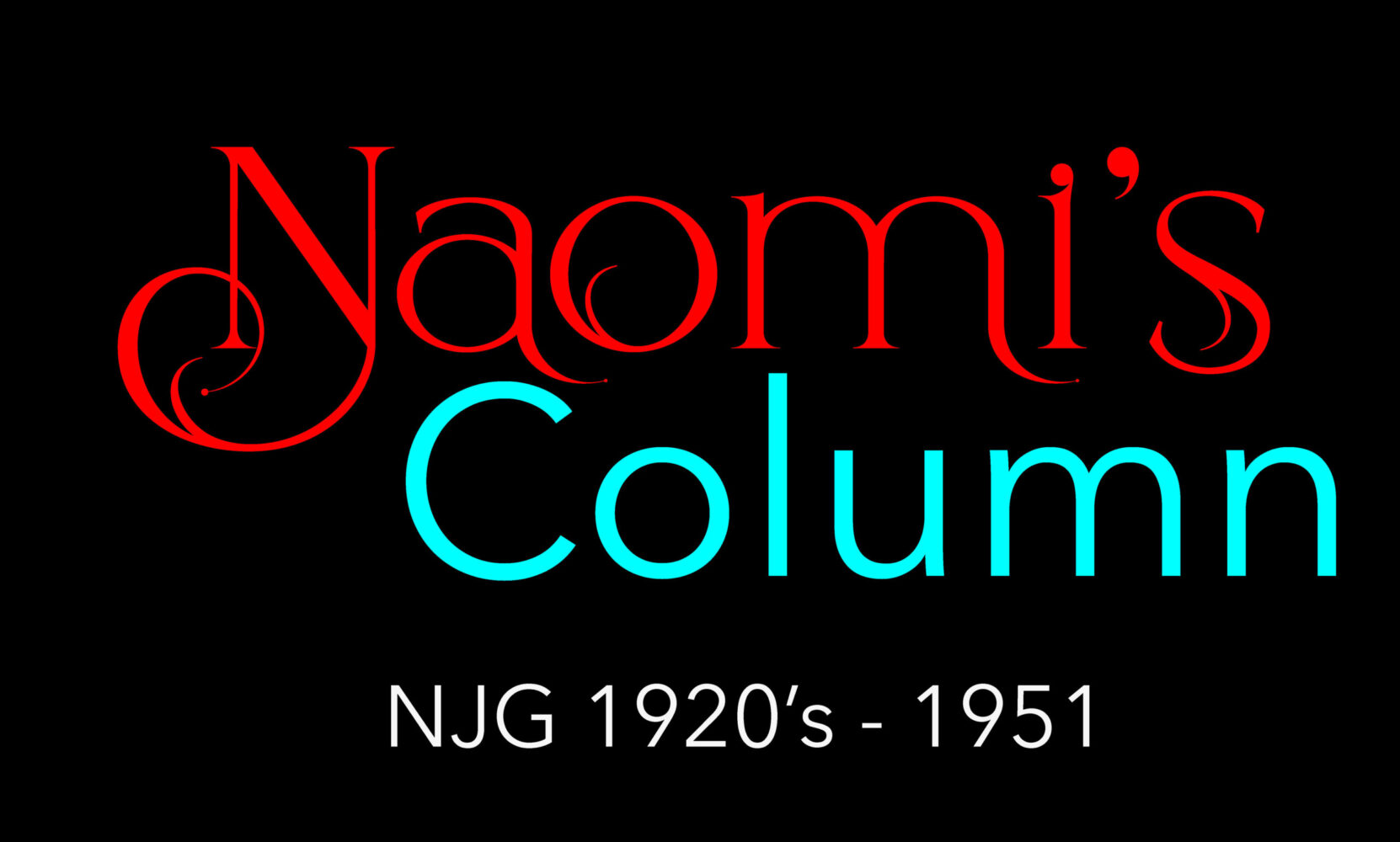NJG Archives
“Naomi’s Advice” – Don’t Let Yourself “Be Made a Fool Of”

“Naomi’s Advice”
___________________________________________
“Naomi’s Advice” Appeared in The Guide From 1920s-1951
Part One
Guide Advice Columnist Warns:
Don’t Let Yourself “Be Made a Fool Of”
By Christina Simmons
Decades ago, from the late 1920s to 1951, the Journal and Guide carried a romantic advice column by a writer who called herself “Naomi” and answered letters mostly from young single girls and women (but a few from married or divorced women and from men) in Virginia and North Carolina and wherever people read the Guide.
Both Naomi and her female correspondents (signing with initials or labels like “Brokenhearted”) often worried about men who weren’t straight with women.
In 1942, 19-year-old “J.M.H.” asked Naomi’s advice about getting a boyfriend. She had dumped a previous one after he had lied to her and was now determined not to let a boy “make a fool out of me.” Naomi sought to help her readers navigate these often challenging relationships and criticized the men who “fooled” women.
I have taught and researched American women’s history and became fascinated with Naomi while studying the history of dating and marriage. I’ve been trying on and off for a decade to find out her real identity. Was she really named Naomi? Was “Naomi” the same writer through the whole period? What motivated her to take up the task of advising young Guide readers? Is there a way to find out after so many years? Maybe someone reading this could help solve the puzzle!
I have read Naomi’s columns in the 1940s, when many people were migrating into Norfolk for war work and the military. As the wartime economy boosted local prosperity after the hardships of the Great Depression, more people were able to afford dating and were looking for romantic advice. Advice columns had appeared about 1900 in American newspapers, as more and more people moved to cities, often leaving behind family members who might have offered advice in the past. Around the same time American culture experienced the jazz age’s “revolution in manner and morals,” where women took a bolder place in the public world and often defied older rules of modesty and restraint. This new social world created doubts and anxieties, which newspapers addressed with the new advice columns, usually placed on women’s pages.
Black newspapers, too, participated in this trend. The Chicago Defender had an outspoken female adviser named “Princess Mysteria” during the 1920s, who advocated respectability and education but also financial independence for women. Mysteria’s promotion of women’s interests stood out by comparison to the much more customary acceptance of male dominance by most white advice columnists.
Although Naomi voiced a lot of conventional wisdom about dating and marriage and was not a feminist in our sense today, like Mysteria she stands out for her feisty attitude and efforts to support women. She comforted one woman who had lost a boyfriend because she “wouldn’t do everything he told her”; Naomi said that was a good thing—he would have probably become a “dictator for life” if she had married him.
Naomi also advocated traditional African American values—like respect for parents and getting a good education. To one 16-year-old who complained that her parents never let her go out and “do not want me to have any pleasure in life,” Naomi replied, “Perhaps your mother and dad are a bit strict on you, but they are doing that for your own protection.”
And she constantly urged young women to focus on their education. She embarrassed one 18-year-old by publishing her letter “exactly as it was received,” with many spelling and grammatical errors. Instead of advice on love, she said, “I would rather make it a lesson in English.” Naomi’s advice was forceful and confident, as she tried to help her readers find their way.
If you have any information on Naomi’s identity, please e-mail the Guide at njguide@gmail.com and Christina Simmons at simmonc999@gmail.com.
In the next installment: How did Naomi advise young single women?
Christina Simmons is a retired professor of history and women’s and gender studies from the University of Windsor in Canada (Windsor is right across the river from Detroit). During her teaching career she taught primarily American and Canadian women’s history and African American/Canadian history. Her book, Making Marriage Modern: Women’s Sexuality from the Progressive Era to World War II, addresses white and African American efforts to refashion marriage in the early twentieth century.
PIC:
Christina Simmons







